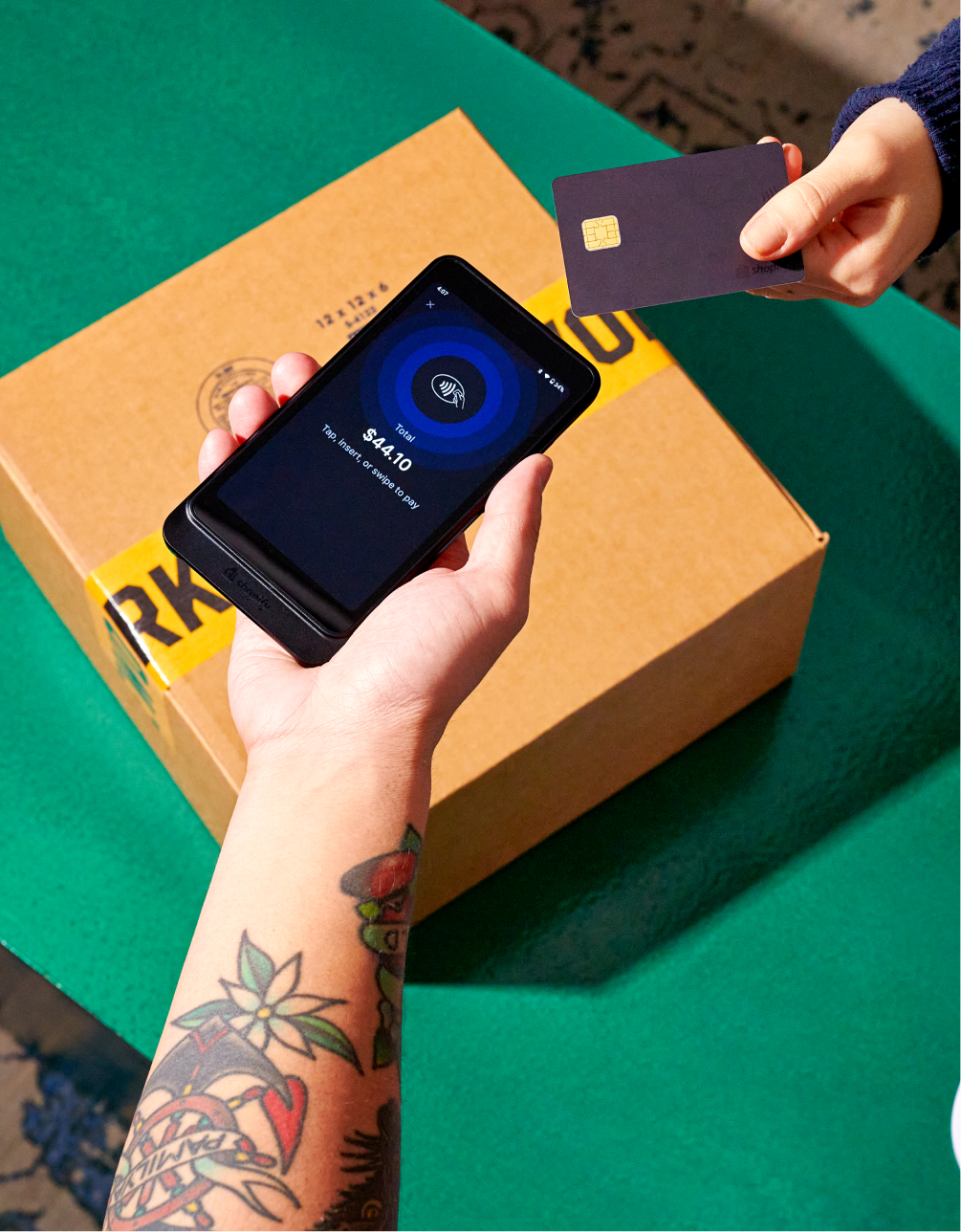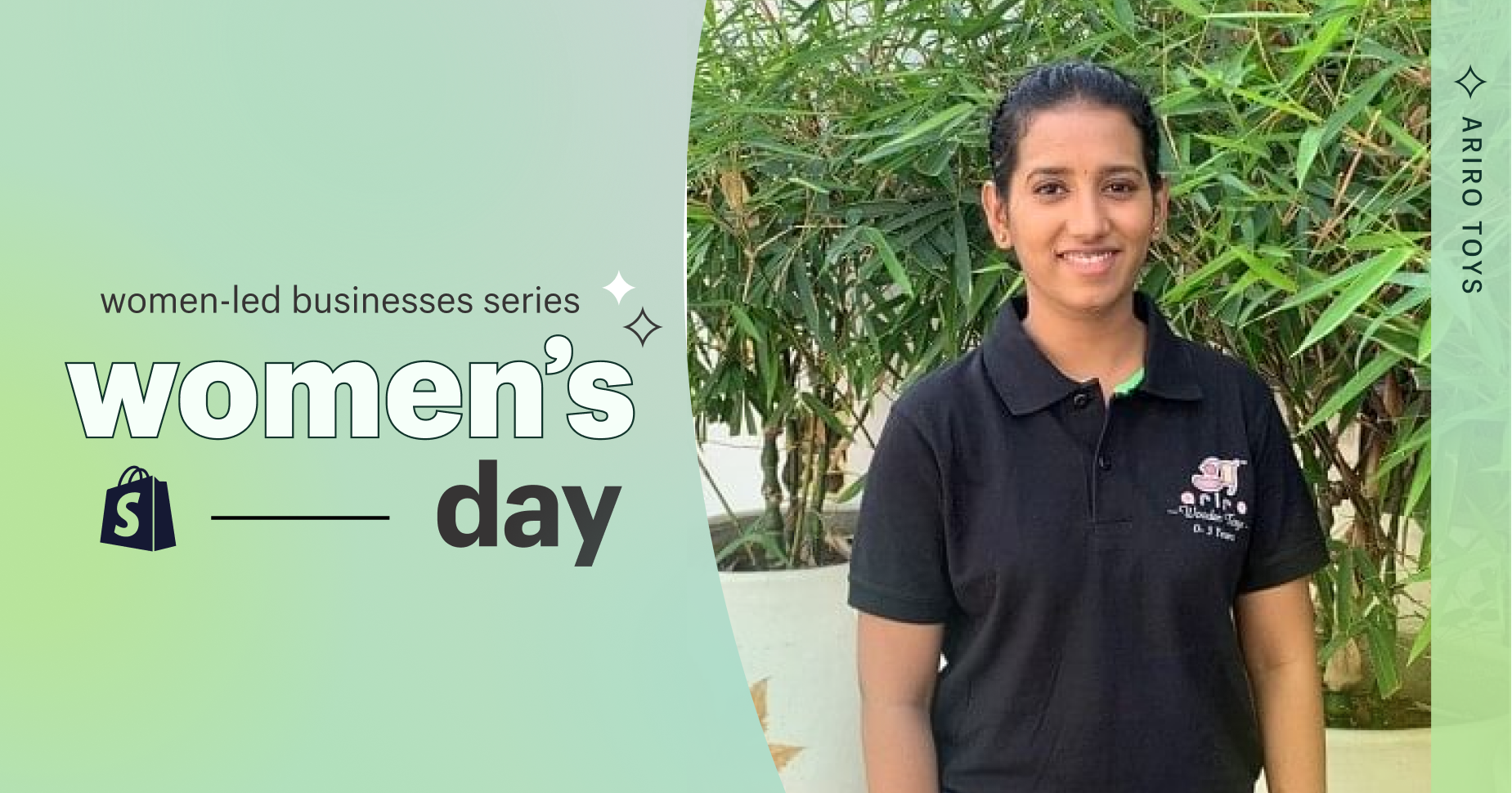Someone said it right…Kids change your world forever!
This was the case with Nisha and Vasanth, a millennial couple whose tryst to provide safe and purposeful toys for their newly-born daughter led them to start Ariro Toys, their very own toy company!
Before donning the entrepreneurial hat, Nisha was a montessori teacher who had experienced the benefits of experiential learning first-hand, while Vasanth had built a media company, and had a Masters in Social Work.
‘On an average, a child consumes plastic equivalent to a credit card every month’, shares Nisha, while explaining the harmful effects of plastic-made toys that have swarmed the Indian markets.
As parents, their search for child-safe toys in India, especially wooden teethers, was futile. While several international markets were conscious about the drawbacks of plastic toys and offered a lot of choices in terms of child-safe toys that parents like Nisha want for their child, the steep prices of those toys put them in the ‘unaffordable category’ for most Indian parents.
‘We were constantly complaining about the lack of options for such toys in India, until one day, we decided that instead of complaining, why not make them ourselves?’
That was their eureka moment. Since then the company has not looked back. Their journey of making child-friendly and ecologically sustainable wooden toys has gone from strength to strength.
A bootstrapped journey to Shark Tank
Initially, Nisha and Vasanth hired a carpenter, and gave him designs and raw materials to make teethers for their daughter. Neem wood was the obvious choice of raw material, as it was naturally anti-fungal and anti-bacterial, making it safe for toddlers who have a tendency to put everything into their mouth.
The couple showed the products to their friends and close ones, and received enthusiastic requests to make such toys for their children too. Although Nisha and Vasanth received positive feedback, they knew that their friends and family would always appreciate their efforts, come what may. The real test was in how the broader market received their products.
Nisha and Vasanth spent two years researching and sampling their products, getting a grasp of the trends, and finding the correct product market-fit. To be confident of what they were getting into, they traveled to several countries, showcased their products at the China Toy Expo, and constantly worked on getting and implementing feedback.
Fortunately, they got positive responses from their primary research as well. This validation gave them confidence to pursue this idea as a serious business. But, what if they had not received positive feedback?
``We were clear about one thing. We’ll only proceed with the business after thorough research and market sizing. If the research throws up negative feedback, we’ll shelve the plan.’, share the couple.
They started Ariro Toys by bootstrapping and have run it independently, up until now when they raised funds on the Shark Tank India platform.
Building a business with a positive impact
Ariro produces purposeful, no-frills wooden toys by employing artisans across toy clusters in India, who struggle to compete against imported toys due to the apparent cost disadvantage.
Ariro reaches out to such artisans, and offers them the designs, raw materials, and other assistance, to make and sell toys to the company.
The business solves two ‘teething’ problems:
- Protecting children from the potential health concerns arising from plastic toys
- Generating steady employment for the struggling traditional toy industry in India
Ariro saw an increased demand for their toys during the pandemic as parents wanted to limit the screen-time for their children and were looking for innovative alternatives.
Ariro’s follows an in-house production model (quite literally) as most of the artisans make the toys in their homes. This proved to be an advantage for them as artisans continued with their work, and the company did not face any production crunch. Further, there were no restrictions on logistics and operations, and hence the last mile delivery was smooth too.
Ariro’s business model: Selling D2C
In the beginning, the entrepreneur duo did not have any idea of which business model to begin with. They only wanted to test their products, and started with a store on Prestashop, but had no intentions of using them for full-scale operations.
The company saw a healthy rise in sales every month, and received lots of positive feedback and constructive inputs from their customers.
The founders share, “A lot of our products were designed based on inputs and feedback that we received while directly interacting with our customers via WhatsApp and social media. Their feedback has helped us make products that are purposeful and cater to their genuine needs.”
Sales were healthy and business was gaining a foothold, but they had to consciously decide on their primary sales model to take their business to the next level.
One thing they realised from their initial days was that actively interacting with their customers was important to constantly enhance their business knowledge, and manufacture products that would fit well in the market. Direct engagement also helped them build better engagement and trust, so much so that parents also pre-order toys for their children from Ariro.
The experience so far made it clear to them that a D2C model was what’s best suited for them. The question they were now faced with was whether to establish their own website, something essential to achieve success in this model, or continue selling only through online marketplaces that offered significant cost benefits.
Selling on third-party marketplaces helped them get their business off the ground, but were marketplaces something that aligned with their long-term vision of building a values-driven brand that obsessed on customer fulfillment and stood out from the rest?
Would a marketplace help them freely access their customers’ data to provide better products? Would it allow them to curate a personalised shopping experience for their customers?
On comparing the two options, they were convinced that third-party marketplaces did not suit their long-term business vision, at least to begin with.They had to set up their independent online store to grow their business in the manner they wanted to
A D2C model with their own online store would allow them to:
- Establish a strong brand by providing a unique buying journey
- Communicate their brand philosophy and values to customers via on-site newsletters, blogs, and other forms on content marketing that assist in enhancing brand loyalty
- Analyse customer behaviour in detail, that in turn would help them engage more meaningfully with customers by providing relevant and personalised offers through targeted marketing and streamlined feedback
Given their preference to go with a D2C model and have their own website that catered to several specific requirements, they decided to partner with Shopify to build their online store.
Learn more:
- 10+ Customer Retention Strategies for DTC Brands
- Hatchful Shopify: How to design an online store logo to nail your branding
How Shopify helped Ariro scale their business
In June 2020, Ariro partnered with Shopify to build their independent online store. Today, they see Shopify as an inherent part of their success story. And why not?
Their online store contributes to over 80% of their sales, with the balance coming in from pre-school tie-ups and offline associations with stores like Hamleys.
Explaining their experience with Shopify, Vasanth says, ‘The decision to partner with Shopify has been quite favourable for us; much like switching from a public to a private bank. The assistance from Shopify has been spot-on and we have always had our queries answered promptly without follow-up..
Vasanth feels that the process of setting up a website with Shopify is super-easy, and that even non-IT people like Nisha and him can easily set it up independently. Their website took off the ground in just a couple of days, and the plugin integrations were also extremely smooth and user-friendly.
For founders like them, getting access to a technology that gives them a bird’s eye view of important business metrics while reducing the time they have to spend in gathering information was key in maintaining their operational efficiency.
Prior to launching their website, they manually combined several reports to check the best-performing channels and then allocate daily marketing budgets.
With Shopify, things became a lot easier. They get access to an optimised analytics dashboard that instantly provides them access to a range of high-accuracy reports at the tip of their hands. They no longer need to pull out and compile data from multiple sources to make business decisions.
The dashboard is updated in real-time, and you can access the reports ‘n’ number of times every day. For data-driven entrepreneurs like Nisha and Vasanth, these features prove to be highly effective in making their everyday marketing budget decisions and tracking channel performances
They candidly share, ‘We have experienced Shopify analytics data to be the most accurate and also use it to cross-verify Google and FB analytics inputs before implementing new campaigns. In fact, we rely on it so much that it has become one of the most-used apps on our smartphones!’
Learn more:
- The Beginner's Guide to Analyzing Shopify Reports and Analytics
- What Are The Basic Ecommerce Metrics I Need to Focus On First
- The Essential Shopify Store Launch Checklist
Advice for parent entrepreneurs
Nisha and Vasanth’s business and their baby was born around the same time, and for them it may have been akin to raising two babies at once. So how did they manage?
“Since our business was related to children, managing both has not been as tough as it could've been”, shared Nisha. Her daughter often accompanies her to the office, and is their chief product tester. Having grown up with Ariro, their daughter has become very considerate of the divided attention, and treats Ariro as her younger sibling - giving her parents the confidence to focus on growing their brand.
Her advice is to take all the help available. She pointed out this important factor while sharing her experience:
‘You will need help at various stages of your journey: from your spouse, your parents, your family, friends. Just keep an open mind, and don’t be hesitant to ask. People are more than willing to help.’
Ariro was started with a passion to solve a teething problem (quite literally), and has shaped into a thriving business growing 10% month-on-month. All it took was Nisha and Vasanth’s grit and determination, coupled with technological assistance from a reliable partner, and support on the homefront from friends and family.
If you are inspired by Nisha and Vasanth’s journey, and want to start your own online store, start your free trial with Shopify now!













